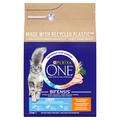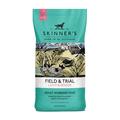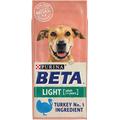We all want our pets to live long and healthy lives, but sometimes achieving all-round health is easier said than done, with so many things to consider.
With a new year stretching ahead of us, what better time to take a look at our pet's health (and happiness!) and make changes for the better. While there will be lots of different areas contributing to a 'healthy lifestyle', we've highlighted the top ones according to experts.
1) Get active
Having a dog is a great way of improving your physical fitness as it forces you out of the house for those daily walks. When it comes to your pet's physical fitness, these regular walks are key and will help establish and maintain a healthy weight, not to mention building strong bones and joints and supporting a healthy immune system.
Every dog is different and exercise needs will vary depending on various factors, including your dog's size, age and state of health. Over-exercising carries its own problems, especially in puppies and certain breeds, so it is important to get the balance right and speak to your vet if you're unsure about how much exercise your pet should be getting.
Exercise and play are also great for your pet's mental health, helping to reduce anxiety and boredom and the destructive behaviours that often come about as a result of this.
How much exercise does my dog need?
2) Find a diet that works
Diet is key for any animal, just as it is for us. Finding a diet that agrees with your pet and provides the correct balance of nutrients needed for health and vitality isn't always easy and the sea of choice available nowadays can make the decision even harder. Some people choose to feed their dog a complete kibble diet, while others opt for raw feeding, which requires a lot more research. For cats, some feed a mix of wet and dry food, while others may stick with just one or the other.
Providing your pet's nutritional needs are being met, your pet is a healthy weight and the diet agrees with their individual digestions, it really is between you and your vet. In certain cases, your vet may advise a specific diet tailored to your pet's unique needs or advise increasing or reducing what you're feeding to help improve your pet's condition.
If you have any concerns about what you're feeding or your pet's weight, it is best to speak to your vet for advice.
Choosing the right commercial diet
A beginner's guide to raw feeding
What is the best diet for my cat?
3) Consider how you can tackle anxiety & stress
Lots of pets suffer from anxiety and stress-related behavioural problems. Some pets are just more nervy than others and require more attention and reassurance. With the pandemic forcing many of us to stay home and even work from home for long periods of time, more and more pets are developing a newfound dependance on us, resulting in higher incidences of separation anxiety.
Separation anxiety is a difficult problem to manage and often there is no quick fix. Depending on the degree of the problem, it would be worth speaking to your vet or a behaviourist to see if there is anything that can be done to improve the situation. Sometimes a simple change like leaving the radio on, using a plug-in like Adaptil or Feliway, rotating toys and limiting fuss when you depart and arrive back home, can make a big difference, but other times, more is needed to address the problem.
If you know you will be returning to the office in the near future, it may help to start leaving your dog at home for short periods at a time now, increasing these periods gradually to help build your pet's confidence and remind them that you always return so there is nothing to fear.
A vet guide to treating separation anxiety
4) Arrange regular check ups
Even if you think your pet is in peak health and fitness, regular visits to your vet are still recommended. Your vet will take note of things you may have overlooked, such as dental health and hygiene, and is more likely to see at a glance if something could be wrong. Seeing your pet every day can sometimes make it harder to notice subtle changes, which is why a fresh pair of trained eyes can really make all the difference.
Regular check-ups will also give you the opportunity to ask questions and discuss concerns, as well as book in your yearly vaccinations and boosters and have your pet weighed.
Of course, there will be many more things that fall under the 'healthy lifestyle' umbrella than covered here and, as always, it is best to speak to your vet if there is something troubling you about your pet's health. Please feel free to reach out to us for advice on diets, supplements, calming solutions and parasite control, or anything else you wish to discuss.
Written by: Hannah








